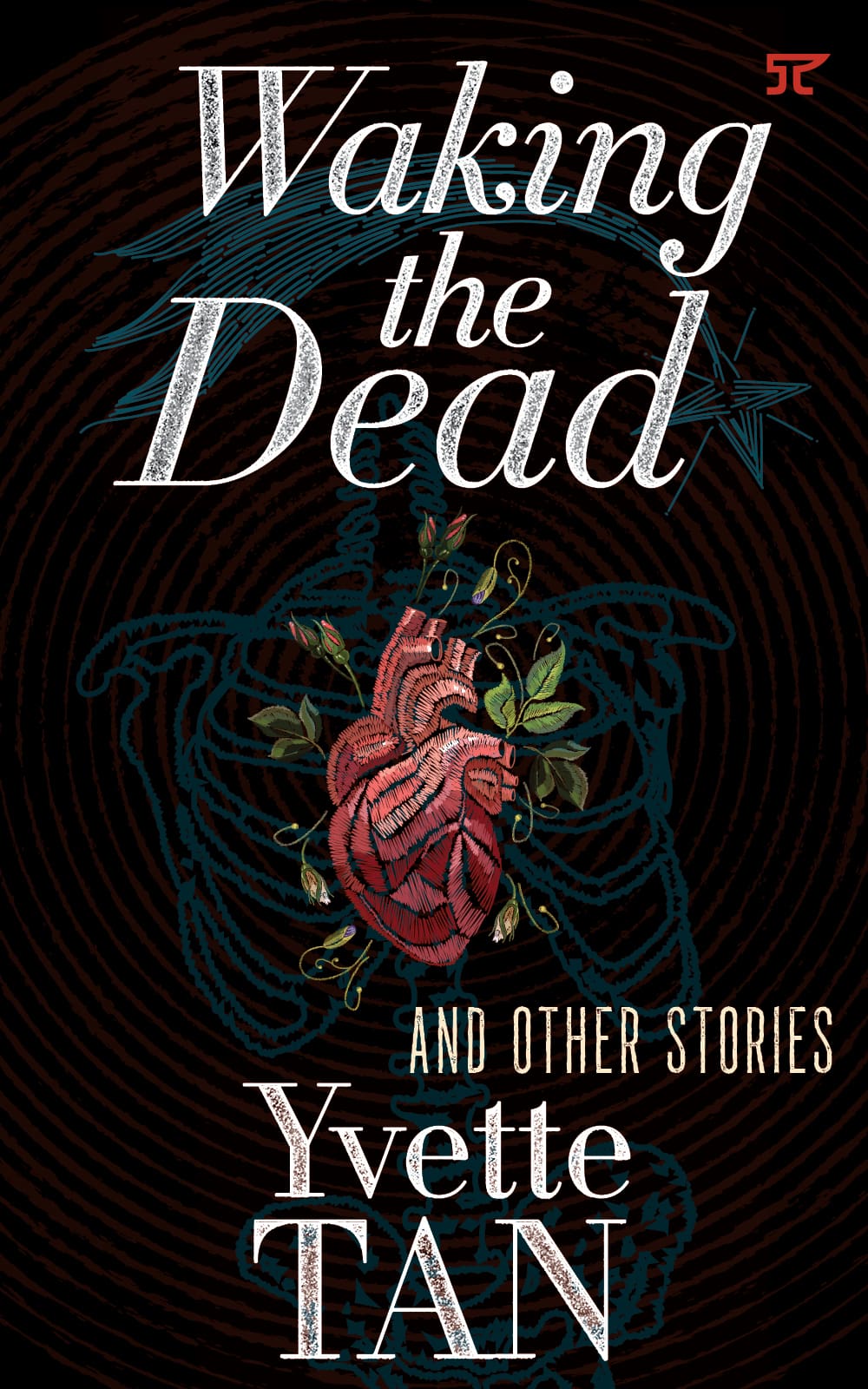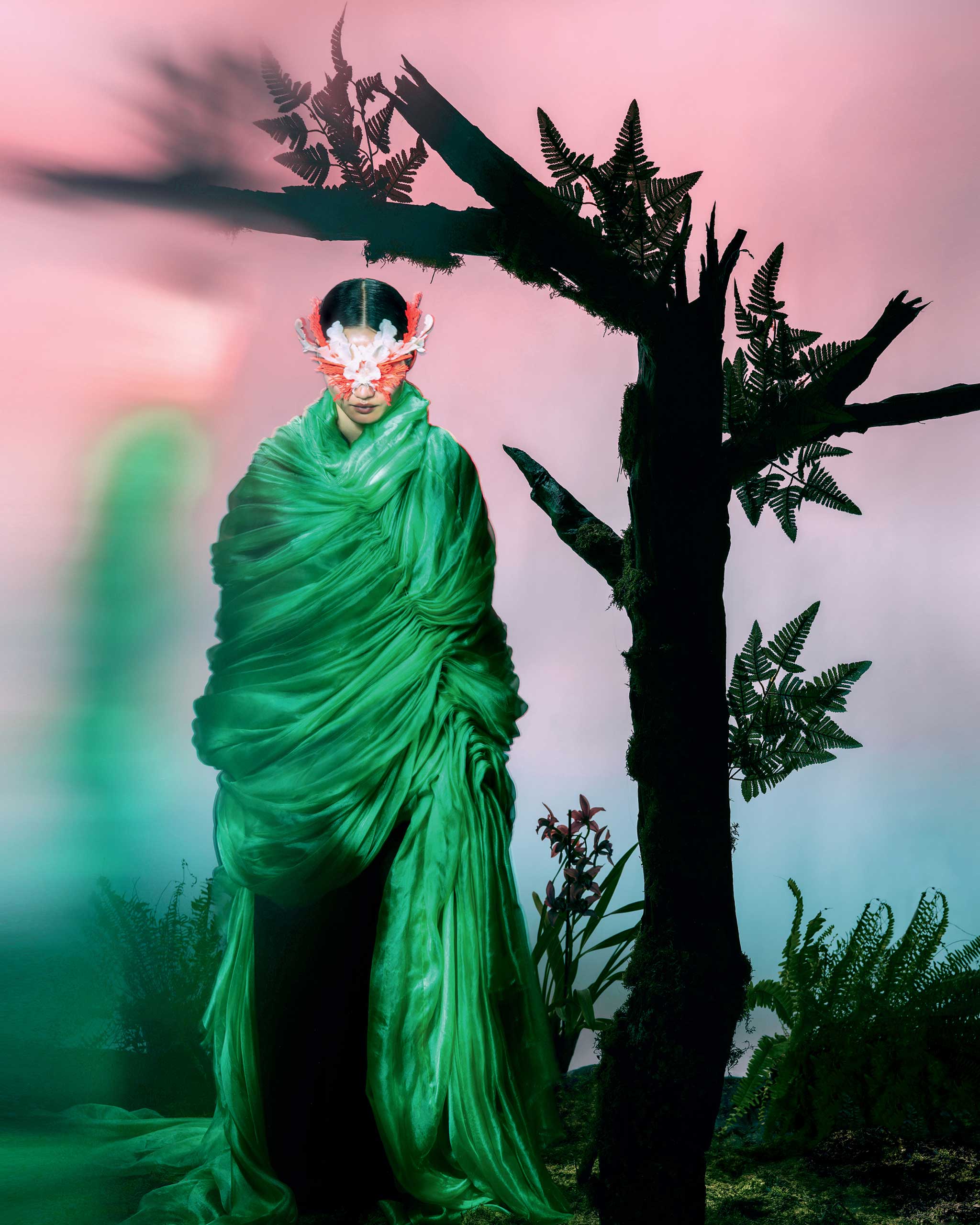Photographed by Pierfrancesco Artini for the August 2023 Issue of Vogue Philippines
Yvette Tan pens a tribute to the horror genre and reflects on its profound impact on her life.
Horror has been making a comeback, creeping slowly into the global psyche like a shape emerging from the shadows, and I couldn’t be more delighted.
It wasn’t always like this. Horror, especially in the Philippines, used to be relegated to the fringes. Of course, this isn’t true. There are numerous horror stories that are considered literary. The work of Edgar Allan Poe, for example. There is also “The Lottery” by Shirley Jackson, the publication of which sparked outrage amongst the readers of The New Yorker in 1948, resulting in hate mail and death threats to the author. The story examines the perils of blindly following traditions. And then there is “The Yellow Wallpaper” by Charlotte Perkins Gilman, which tackled the importance of giving women agency with regards to mental health and recovery.
But the image of the horror genre as something unserious persists to this day, despite scholars saying otherwise for decades. In fact, it’s half the reaction I get when someone asks what kind of fiction I write. This response is often accompanied by a physical recoil, as if I had just declared that I had admitted to an unpardonable crime. But I’m used to this. I’ve been dealing with it ever since I published my first story in 2000, and I still get it sometimes up to now, 24 years later.
“What a lot of people cannot articulate about their dislike for horror is its tendency to showcase traits that aren’t fit for polite company.”
I’m a scaredy-cat. This confuses a lot of people because I write scary and creepy stories, and I’m very interested in the paranormal and the supernatural. When asked how I ended up being known as a horror writer, my answer is usually “your guess is as good as mine!” The truth is, though I may not like watching horror movies (something that I realize is not true since not only will I watch them, I’ll even watch them by myself), I love reading horror fiction. I am drawn to the way language is used in horror fiction. I love the way the words are put together in sentences and how they sound in my brain when I read them. When I began writing fiction, I didn’t set out to write horror. I just wanted to tell a story that I wanted to read, using words that sounded nice to my ears. When I began writing, I didn’t expect other people to like my stories, but now, three books later (I’m a very slow writer), I’m very glad that they do.
It wasn’t always easy. As I mentioned, until recently, horror wasn’t considered something “respectable.” I remember the only words my mother said to me on the day of the launch of my first book. Not “Good job,” not “I’m proud of you,” but “Why couldn’t you have written a Christian book?” As if I had a choice in what I wrote.

That’s the other thing I tell people. I didn’t choose horror, it chose me. My favorite genre is comedy, but horror is what comes naturally to me. I’ve often wondered why this is so. I think it’s because it’s the easiest way for me to make sense of the world. Even though I grew up in an average middle class family with parents who loved me and tried to do their best to raise their children, I didn’t have an easy childhood. My mental health was neglected, even belittled, as was the norm at that time. Reading and later, writing, were my escape, and horror books were the most soothing of all.
Studies have shown that horror media has many benefits, including a cathartic effect on its audience. Watching or reading about somebody encountering a stressful situation helps the viewer or reader purge repressed emotions. Horror can also be a way to examine societal ills. My favorite kind of story, especially in horror, is the kind that takes place during real historical events, with real world trauma bleeding into the fictional narrative. Guillermo del Toro’s Pan’s Labyrinth, for example, is set toward the end of the Spanish Civil War. I try to do the same in my fiction, using historical events and real problems as plot points, not because I aim to teach a lesson (I’m not fond of tales that set out to cram a moral down the reader’s throat. It reeks of too much propaganda), but because it’s fun for me.
“Horror invites us to ask questions like, why are there ghosts? And if we dig deeper, we get answers like, because some people die with unfinished business.”
I grew up in the 80s, where stories of the supernatural were featured in tabloids, magazines, and news shows as part of the regular news cycle, and my fiction never really left that world. Writing about the creepy, spooky, and weird has helped me make sense of the world, and has helped me examine what it means to be a monster, and what it means to be human. In a lot of my stories, the humans are usually the ones committing monstrous acts.
What a lot of people cannot articulate about their dislike for horror is its tendency to showcase traits that aren’t fit for polite company. Horror. Terror. Sadness, Grief. Emotions that tend to get swept under the rug. Horror invites us to ask questions like, why are there ghosts? And if we dig deeper, we get answers like, because some people die with unfinished business. Behind most specters is a story of heartbreak, and if humans were better at examining their emotions and being sensitive to others’ needs, then maybe there wouldn’t be so many stories of enraged spirits roaming the earth. As American writer and editor Douglas Winter said, horror is not a genre, it’s an emotion.
I’m glad that I didn’t let people’s comments during my early days of writing get to me. I’m glad that I live in a time where people are embracing the genre, understanding that it holds one way of finding one’s truth, even if that truth may not always be pretty. But as Carl Jung pointed out, the sooner we make peace with our shadows—the deep, hidden parts of ourselves we don’t like and are ashamed of—the sooner we can life fuller lives. There are people who naturally find comfort in dark things, and I’m one of them.
Photograph by Pierfrancesco Artini for the August 2023 Issue of Vogue Philippines. Styling by Jana Zabarska. Makeup: Jimmy Stam using Shiseido. Hair: Bianca Van Zwieten for Varis Professionals using Schwarzkopf. Model: Qian Li from Uno Models. Art Director & Production Designer: Roberta Terra. Art Director Assistant: Elda Frison. Stylist’s Assistant: Raúl González. Flowers: Loverde Studio.
